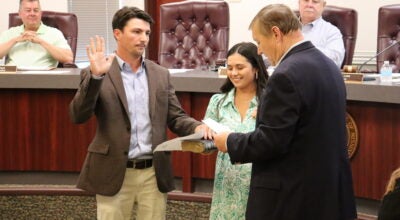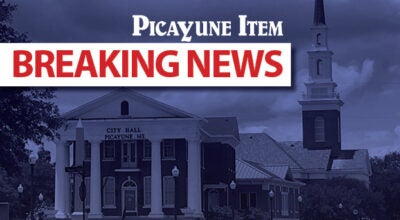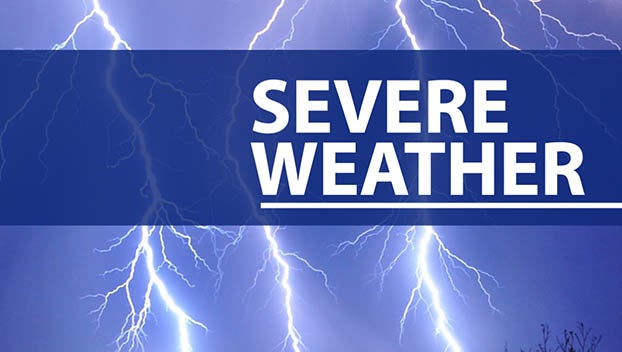What Happens When a Newspaper’s Opinion Page Ignores National Politics? New Research Finds More Local News Can Bring People Together
Published 4:15 pm Monday, September 20, 2021
BATON ROUGE—A Google alert prompted LSU Assistant Professor of Political Communication Joshua Darr to drop everything else he was working on. From the alert, he read that Julie Makinen, the executive editor of The Desert Sun newspaper in southern California, had mentioned one of his studies. In this study, he had found political polarization increases when a local newspaper closes. In the absence of local news, Americans rely more heavily on national news sources to make political decisions. And the result is: “People are more likely to vote for one party up and down the ballot,” Darr said.
Less local news contributed to more polarization.
Intrigued, Makinen decided to conduct her own experiment. She announced her Palm Springs-based daily newspaper would drop national politics from its opinion page for the month of July 2019. Her rationale? Move the focus back to home. In lieu of cartoons and op-eds about the president, Congress, etc., The Desert Sun would devote space to local writers and issues affecting California, Palm Springs, and the surrounding Coachella Valley.
Immediately, Darr and his study co-authors Matthew Hitt from Colorado State University and Johanna Dunaway from Texas A&M University knew they wanted to seize the opportunity. They dropped all other projects. In two weeks, they managed to consult Makinen, design the study, and secure approvals and funding. Through surveys to gauge political attitudes and a content analysis to assess changes in coverage, they were able to answer their research question: When a newspaper increases its emphasis on local issues, can it help bridge the political gaps in their community?
They found the answer is: yes. Their new book, Home Style Opinion: How Local Newspapers Can Slow Polarization, documents this work.
Darr shares findings and implications of this research below.
Q: Much of your research focuses on the relationship between local and national settings, specifically political knowledge, partisan polarization, and local news. What are the consequences of inadequate local news and increased reliance on available national news?
There is a strong and growing body of research showing just how much a strong local news environment helps government work better. When it weakens, people know less about politics; they participate less in it; fewer candidates run for office; municipal bond ratings are worse; and representatives bring fewer benefits back to their district. Our work contributed to this by showing how national news can be detrimental: Information about national politics has never been more widely available or easily accessible, and it drives people apart politically.
Q: You and your co-authors measure how banning national politics affected topics on The Desert Sun’s opinion page and the attitudes of people in the Palm Springs area. What did you find?
The experiment was a pretty extreme change for readers of the newspaper: Mentions of Democrats or Republicans dropped from 25 percent of the opinion page to 10 percent, and mentions of then-President Donald Trump dropped from around one-third of all stories to zero.
There was a distinct localization of the opinion page: Issues that really matter in Palm Springs, like architectural preservation and transportation, surged in July, while nationalized issues, like immigration, fell away.
These changes had effects on polarization, as we’d hoped. We ran surveys of the Palm Springs area, as well as the Ventura area (a statistically similar comparison community), before and after the experiment. We measured two types of polarization: affective (how much you dislike the other party) and social (how uncomfortable you are in social relationships with members of the other party). We found that, relative to Ventura, polarization slowed down significantly in Palm Springs among those who read the newspaper, know a lot about politics, and participate in politics. The most politically engaged people were the ones most affected by the one-month decision to drop national politics.
Q: What are the key takeaways from this research?
Local news emphasizes local identity, which can make political parties seem less important. Rather than thinking like Democrats and Republicans and deciding local issues based on national politics, local news provides an avenue for people to think like locals and address concerns unique to their community. If we lose it, national political news will dominate the discussion, and the political process will seem distant and alienating.
Q: What do these results mean for news entities, communities, policy makers, and legislators?
Local newspapers with the resources to conduct an experiment like this may want to try it. The Desert Sun reported that readership of their online opinion articles nearly doubled in July compared to June, and they were able to recruit writers who continued to contribute in the following months.
Communities and local newspapers should work together to build up a roster of local opinion writers and reserve space for the leaders of local non-profits and advocacy groups to speak directly in the newspaper.
Policymakers and legislators should support local news as a way to make politics work better: Compromise, collaboration, and accountability are all improved when polarization is lower and local news is stronger.
Q: In March 2021, Sens. Amy Klobuchar of Minnesota and John Kennedy of Louisiana and Reps. David Cicilline of Rhode Island and Ken Buck of Colorado introduced the Journalism Competition and Preservation Act (JCPA). What impact would this bill, if passed, have?
The JCPA would allow local newspapers to collectively bargain with the tech companies, specifically Facebook and Google, that currently take a large portion of their online advertising dollars. As print advertising declines, online ads matter more than ever, and newspapers make very little money from them since Facebook and Google take so much. The JCPA would be part of a long tradition of government assistance for vulnerable local news.
Darr and his collaborators are interested in replicating and extending this work. They’ve been in touch with journalism organizations that may want to partner with them. In the meantime, Darr has been running experiments on the connection between local news and local identity.
“The crisis in local news seems likely to continue,” Darr said. “And we will keep trying to figure out what we are losing, why it matters, and what can be done about it.”
Learn more about Darr at https://www.lsu.edu/manship/
For more information, contact acharbonnet1@lsu.edu.




